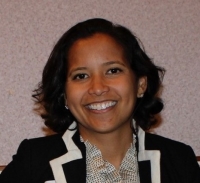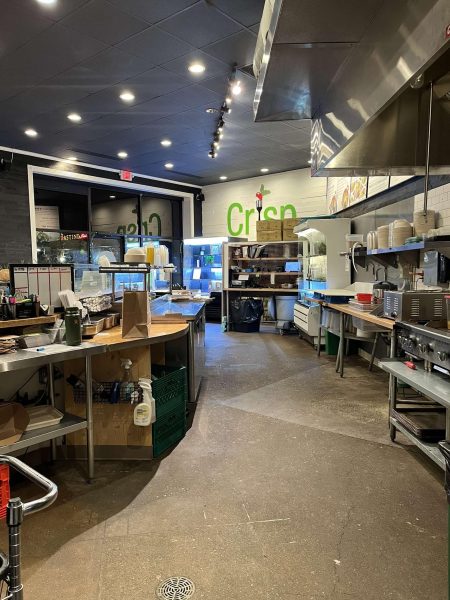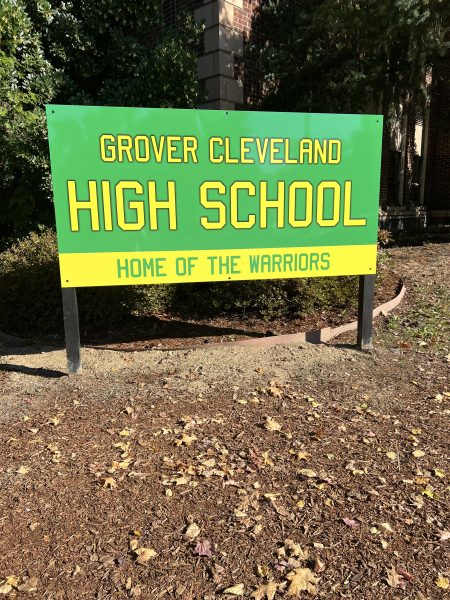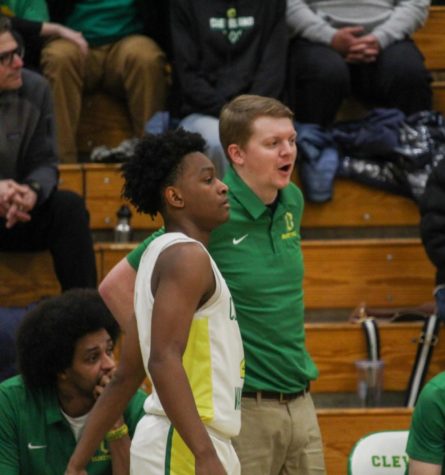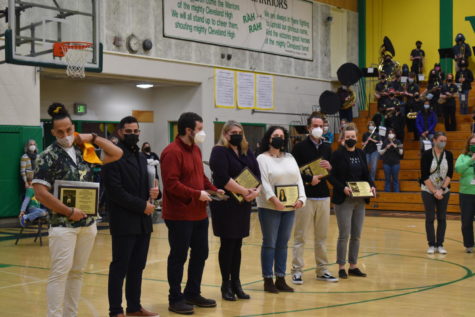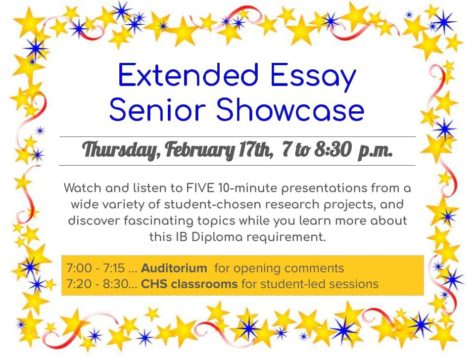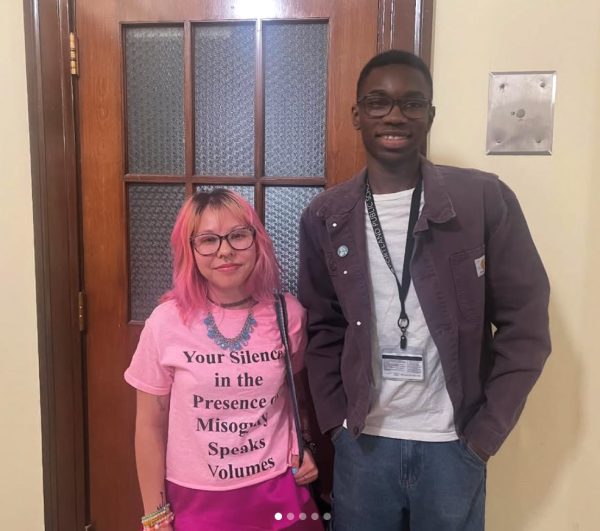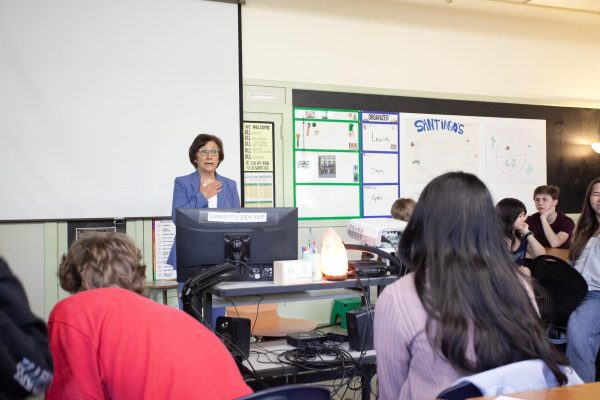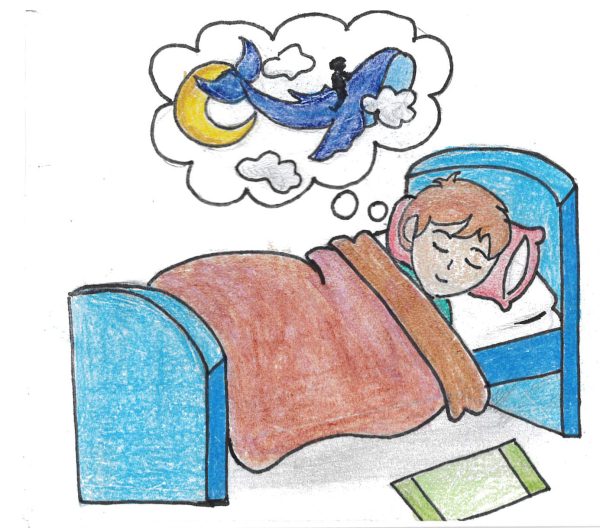Natalie K Wight – U.S District Attorney For Oregon – CHS Alumnus
On Sept. 8, 2022, Natalie K. Wight was confirmed by the United States Senate as the U.S. attorney for the state of Oregon. At the age of 47, Wight is now the highest-ranking federal prosecutor in the state. Not only this, but she is also now the first Black, and second Asian-American woman to have authority over the Oregon Attorney’s Office.
However, a little known fact about Wight is that she is a 1992 graduate of Cleveland High School. In an exclusive interview, the Clarion news team spoke to Wight inside her office at the Portland Federal Courthouse about her time at Cleveland and how she got to her current position.
Wight has served in the Department of Justice for 18 years and has worked with the Oregon U.S. Attorney’s office for 10 years. She specialized in the violent crime section and in the criminal division, working in cases that involved human trafficking, assaults, organized crime, child exploitation, and other aggressive offenses. Wight was an attorney at the Federal Bureau of Prisons from 2003 to 2008. Then, from 2008 to 2012, she served as an Assistant United States Attorney in the United States Attorney’s Office for the Northern District of California.
Generally, U.S. attorneys supervise their district offices and the district attorneys who serve under them, while also representing the federal government in criminal and civil courts.
“Our office covers federal issues, not just state and local and county prosecutors,” Wight explained. “We only prosecute cases that are actually in violation of a federal statute or federal code. So things that tend to be more significant cases, or maybe a case where we have drug trafficking, and someone came from California to Oregon to Washington and crosses all these state lines, we’re able to take that case and use our resources with the law enforcement officers to sort of bring a federal case versus one state can’t do that.”
Wight’s office also takes on significant national issues such as environmental pollution, doing both criminal prosecutions and civil defense. “So it means that we defend the United States and all federal agencies anytime they’re sued over something,” Wight said.
U.S. attorneys can prosecute on behalf of the federal government or defend it depending on the case. Each current U.S. attorney is overseen by the 86th United States Attorney General, Merrick Garland, who monitors the activities of all 94 districts.
Wight was significantly involved in many school extracurriculars during her four years at Cleveland. Not only was she Spring Student Body President, but she was also crowned Homecoming Queen, Prom Queen, and Cleveland Rose Princess, three distinctive honors within the Cleveland community.
While maintaining these important leadership roles, Wight also excelled in athletics. During her time on the soccer team, she received First Team All-PIL and was elected team captain. In 2009 she was inducted into the PIL Hall of Fame.
Wight joked, “I was a jack of all trades, master of none; I was never like the best soccer player. In fact, my sister was the best soccer player; she was amazing. But I loved being the captain of the team. I love bringing everybody together. I love seeing everyone’s strengths. Not every player has the same strength when you’re on a team. I thought I was good at identifying each individual’s strength.”
She also excelled academically while at Cleveland, which allowed her to attend the College of Idaho and earn a Bachelor of Science degree, before Master of Science from California State University in 2000. Later, she attended the University of Notre Dame to study law and entered the law field with a Juris Doctorate.
“I love genetic engineering. My senior undergraduate thesis was on developing a genetic testing model to collect plant material. So I did do some genetic-focused research in my biology career, but that was only my undergraduate, you know, if you still develop beyond that, because when I was doing my genetic testing on plants there, there was no protocol. And I’m a Virgo, so I like systems and wanted to ensure that the next person after me had something that made their life easier,” she said.
Wight also spoke about a specific experience she had while working to get her master’s degree in genetic engineering that bolstered her ambitions to work in law. While studying fire ecology and rare plants she explored a variety of possible reservoir sites with other students.
She explained, “I spent every summer in graduate school every day, walking 10 to 12 miles a day. So we had to hike all over Northern California; we were carrying giant backpacks, shovels, and all this stuff. Our main job was to find the location for the next reservoir in California. So that was our job as biologists to see what the terrain was like, what the plants were like, where the animals were. Ask, ‘is this an excellent spot to fill it up and have it be a new reservoir?’ We worked our butts off all summer doing that.”
They needed to decide which site was the most ideal, and when the day came to make their case for the site they chose, Wight’s group was undermined by a panel of environmental lawyers.
“I and a few other biologists were all dirty, wearing cargo pants, boots, and whatnot. We go there and tell them, ‘This is what we found. Here’s the research. This is, you know, this is our selection,’” Wight said. “We wanted Site A, and then the next group came in, and they were all these folks in suits. They came in, sat at a table, and we were like, ‘these guys are professional!’ They presented their research and papers and stuff that they decided. They told the board that they wanted Site B. And we were like ‘I didn’t see that guy on the trail, wandering around, figuring it out!’ So someone said, ‘Oh, that’s the group of environmental lawyers.’ I didn’t know a lawyer, there were no lawyers in my family, and I’d never thought about law school. And then that day, I was like, this is so important to me. I’ve spent hours of my life, and I was so invested in where it was going to be. And in the end, I didn’t have control, I didn’t have the power of persuasion that these guys did.”
Although it was discouraging in the moment, Wight turned that experience into motivation.
“So I imagined what it would be like if those guys in suits were also biologists–they might have been, I don’t know, I don’t know their whole background. But I said, ‘if I could also be a biologist and a lawyer and then present, wow, what a great combination that could be.’ So when I went to law school, I went to Notre Dame, absolutely convinced that I would become an environmental lawyer. But it’s incredible when you go to law school. You’re just absolutely empowered. You learn your rights, you know, about property, criminal law, all the stuff, you’re like, oh my gosh, and you feel like you could do anything,” Wight said.
To this day Wight contributes to the Cleveland community; she is the administrator and oversees the Mock Trial team, mentoring students and leading the team to its many victories. The news team spoke to mock trial team seniors Ellie Buck, Ruby Orkin, and Byronnie McMahon about their experience on the team under her guidance. They all spoke highly of Wight and how important she is to them as a role model.
“For me more than anything, she’s just really become a great role model and mentor in my life. I can come to her with anything, in terms of navigating not only the legal world but the whole world in general,” Buck said.
Orkin noted that she has “learned graciousness” from Wight and MacMahon also added, “She’s kind of like my second mom, so she’s taught me a lot. I know that I want to become a lawyer because of her.”
Buck says Wight is an incredibly supportive Mock Trial coach. “Even if you’re the least committed person there, she’s committed to you. So even if you don’t show up to practice, or if you miss two weeks at a time, she will text you or email you. She’s just an amazing and supportive person in general.”
Wight’s impact on the students in mock trials is undeniable. Buck recalls how she’s grown over the years. “I’ve been doing mock trials since freshman year, seeing everyone else that I’ve done it with evolve and succeed career-wise. Like Byronnie, she’s now the district representative, with the leadership and mentorship skills [Wight] has provided us.”
While reminiscing about her years at Cleveland, Wight recalled one of her favorite teachers, Bernie Carlson. “He used to be a golf coach and was in charge of chemistry. He taught everyone to love it. As a kid, you don’t appreciate that; now I look back and think about all the time he gave us…He was definitely one of my favorite teachers there. And I did end up going to college and studying biology and chemistry because of him.”
According to Wight, one of the biggest lessons Cleveland has to offer is the importance of teamwork.
“The biggest thing I probably still use all the time is the importance of teamwork and your friends. I know that seems silly because it’s not like I learned a special process, got straight As, and did all my homework. I think that something we use in the office every single day is teamwork and relying on each other. When you’re a lawyer, it’s not just you–and it’s never just about you–in fact, when you’re a lawyer, it’s rarely about you; you have clients,” Wight explained.
Wight spoke further about the application of that lesson, as she discussed the importance of thorough perception of everyone. “Before I make my judgments, and when I charge someone for a crime, I don’t put blinders on; I put myself in that person’s shoes and ask myself why, you know, ‘why did they commit this crime? What’s going on in their lives? Where did they come from?’ How their childhood was matters to me; it doesn’t excuse the crime. That victim sometimes in the case may have to think about it, but I’m never blind to what’s happening everywhere else around me. And I think that that helps. And I think I did that as a student. I was friends with everybody. I did that my whole life and all my schooling, at my job.”
Despite spending so much of her time working on child exploitation cases, Wight stressed the significance of balancing circumspection with curiosity. She continued, “Also, forgive yourself for initial judgments. I always tell my guys that having that initial response is ok. Right? You should first have a first impression. So this should be June, genuine or authentic, like, oh my god, this is gross, so scary, or whatever. As long as you always have a second, more thoughtful evaluation, give yourself a break and let yourself have a genuine response. Right? That’s, it’s real. And if you don’t pretend that you don’t have that first response, then you can become a better person.”
Wight wants to emphasize her dedication to youth in Portland.
“I have worked closely with Cleveland High School students for 10 years, and every year I am inspired by their knowledge and passion for critical issues affecting them at school and in their neighborhoods. The U.S. Attorney’s Office is focused on protecting Oregon youth from violent crime, drug trafficking, online exploitation, cybercrime, and environmental impacts. We want to highlight all student voices who are trying to make sure Oregon stays a safe and beautiful place to grow up,” Wight said.
Hello! My name is Henry Callahan and this is my 4th year on the Clarion. I spent my first 3 years writing for the News team and now I am the Online Editor....
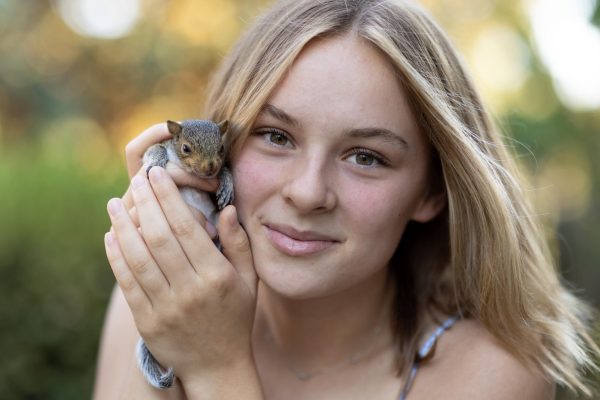
Hi I'm Lloy! This is my third year writing for The Clarion. Fun fact about me is that I'm a twin.

Hi! This is my third year writing for The Clarion, I most enjoy reporting on administrative changes, writing opinion pieces about different cultural observations,...



